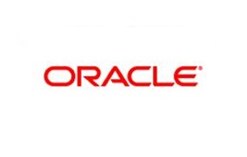If the business world seems to move much faster these days, that’s because it does. For a long time, change happened slowly. Take economic cycles: In the 1900s, it took about 19 years to go from the bottom of a recession to the top of a peak. Life moved at a steady, controllable pace. Businesses knew who their competitors were and had plenty of time to adapt to the newcomers. It was all so simple.
But then technology came along, swiftly followed by the cloud. And with it, gargantuan amounts of data to collect and crunch, at a fraction of the cost it used to be. No longer did innovation mean swallowing up budgets and time. Barriers to entering new markets came crashing down, accelerating ambitions and innovation even more. Now, adopting emerging technologies is a necessity, not a choice. Wait for something to hit the mainstream, and your business won’t be looking at the menu—it’ll be on it, about to be devoured.
If that sounds too dramatic, then just ask the people who once worked for Kodak, Blockbusters, or Woolworth’s—iconic brands that didn’t innovate. MySpace and Friends Reunited, anyone? Such is the speed of change that even the disruptors get disrupted. We used to be stunned when Amazon, eBay, and Groupon took just a decade to get to $10 billion in annual revenue. Now there are about 30 companies that have gone from zero to $1 billion in four months.
New Business Models Depend on Data
They all have one thing in common. They are data-crazy. They’ve realized that the way to take on their competitors is to spot patterns and anomalies in data faster and more regularly than the next guy. The fastest-growing company right now (though I guess in the time it takes you to read this article it might all have changed) is Jet.com—and all they do is use AI and machine learning to predict the price changes of flights and beat the market.
When I started my career—when I bought my clothes at Woolworth’s and my camera film from Kodak—doing what Jet.com does would have meant some serious spend. But it cost them barely anything to get started, just some basic data tools and algorithm know-how. And now they’re taking market share at supersonic speed.
Let’s look at China. Even as recently as 2011, its old big banks dominated the consumer payment space. Now, they don’t. And which payment solution startup is causing them to worry? WeChat—a messaging app whose capabilities have grown way beyond its original purpose. Out-mastering your enemy is hard enough when you know who they are. But when it could be anyone.
Opportunity or threat, defend or attack; either way, action has to be the answer. But hold on, you might say: I’m a food retailer, or I’m a car manufacturer, and my business is making medicine or building houses or giving financial advice. What do I know about all this data stuff?
You don’t need to. But you do need a partner who does. You need a partner who has the technology, the expertise, and the time you don’t; who has the keys to unlock that Pandora’s box of secrets lurking in your data; who has the appetite and know-how to innovate at breakneck speed; and who can take you with them.

